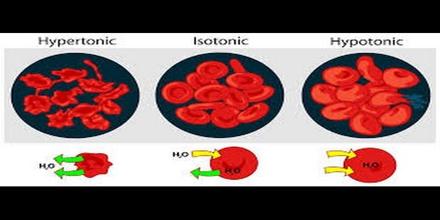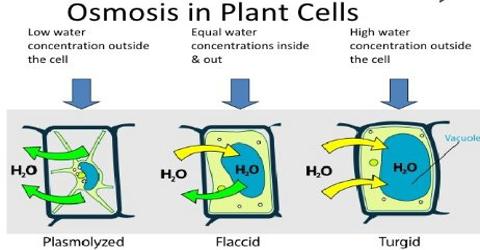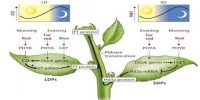Osmosis: Osmosis is thought to be a special type of diffusion and may be defined as the diffusion of the solvent (e.g. water) through a differentially, permeable membrane from an area where it is in high concentration to an area where it is in low concentration. At the cellular level, osmosis is the process where particles diffuse over a semi-permeable membrane from a lower concentration to a higher concentration.
This diffusion continues until the two solutions become equal in concentration.

Osmosis is of two kinds:
Endosmosis: The inward flow of liquid through the semi-permeable membrane of a cell is called endosmosis. The flow of solvent from outside of a cell to the inside of the cell. By this process, the plant absorbs water through root hair.
Exosmosis: This outward flow of liquid from the semi-permeable membrane of a cell is called exosmosis. The flow of solvent from inside of the cell to the outside of the cell. By this process plasmolysis of the cell occurs. E.g. the water will come out of the cell during exosmosis.













